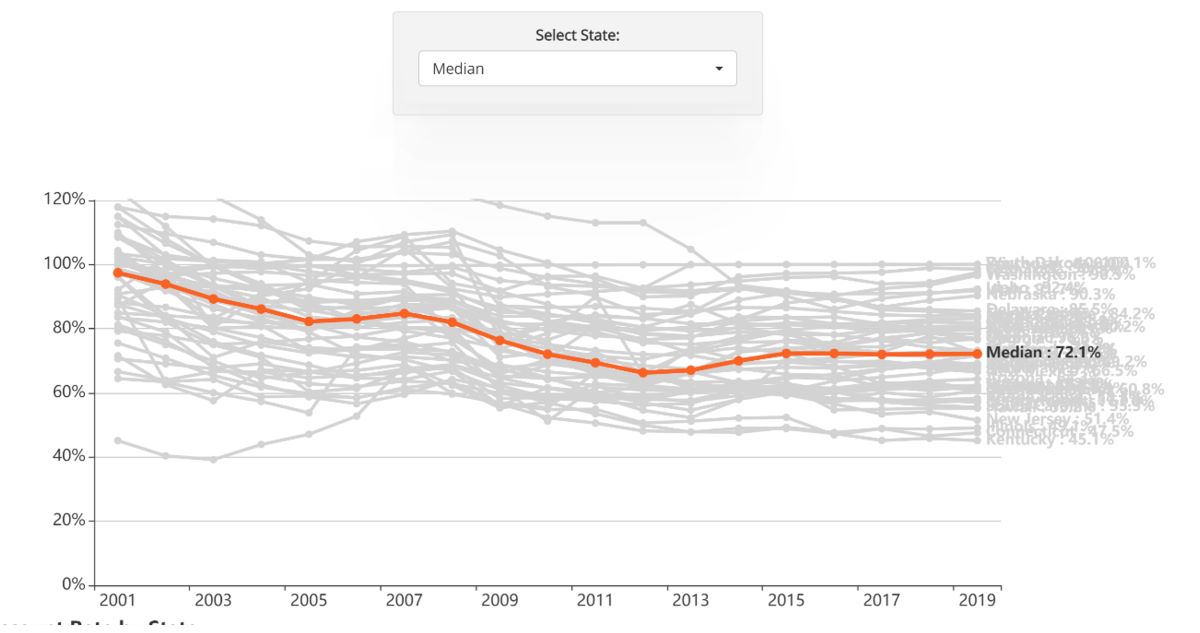Home>Finance>What To Do When A Bank Does Not Protect Exempt Pension Funds?


Finance
What To Do When A Bank Does Not Protect Exempt Pension Funds?
Published: January 23, 2024
If your bank fails to protect your exempt pension funds, learn how to navigate the legal and financial steps to secure your finances. Get expert advice on finance and pension protection.
(Many of the links in this article redirect to a specific reviewed product. Your purchase of these products through affiliate links helps to generate commission for LiveWell, at no extra cost. Learn more)
Table of Contents
- Understanding the Dilemma of Unprotected Exempt Pension Funds
- Essential Insights into Pension Funds and Their Exempt Status
- Upholding the Integrity of Pension Fund Safeguards
- Navigating the Recourse for Mishandled Pension Funds
- The Vital Role of Legal Advocacy in Safeguarding Pension Funds
- Nurturing Confidence in the Protection of Exempt Pension Funds
Introduction
Understanding the Dilemma of Unprotected Exempt Pension Funds
When individuals diligently contribute to their pension funds, they do so with the expectation that these funds will be safeguarded for their retirement years. However, the unfortunate reality is that some banks may fail to provide the necessary protection for these exempt pension funds, leaving account holders in a state of distress and uncertainty. This predicament can be deeply unsettling, especially considering the pivotal role that pension funds play in securing financial stability during retirement.
The mishandling of exempt pension funds by financial institutions can stem from various factors, including negligence, oversight, or even misconduct. Regardless of the cause, the repercussions of such mishandling can be profoundly distressing for those who have entrusted their hard-earned savings to these institutions.
In this comprehensive guide, we will delve into the intricacies of exempt pension funds, explore the legal safeguards in place to protect them, and provide actionable steps for individuals to take in the event that a bank fails to uphold its obligation to safeguard these vital funds. Additionally, we will shed light on the importance of seeking legal assistance to navigate this challenging terrain and ensure that justice is served.
By shedding light on this crucial issue, we aim to empower individuals with the knowledge and resources needed to address the mishandling of exempt pension funds, ultimately fostering a sense of security and confidence in the protection of their financial assets.
Understanding Exempt Pension Funds
Essential Insights into Pension Funds and Their Exempt Status
Pension funds serve as a cornerstone of financial planning, offering individuals a means to secure their financial well-being during their retirement years. These funds are often accumulated through regular contributions made by employees and employers, with the goal of providing a steady income stream after retirement.
Exempt pension funds, in particular, hold a distinct status in the realm of financial assets. They are typically shielded from certain types of creditor claims and legal judgments, offering a layer of protection to ensure that individuals can rely on these funds as a source of financial security in their later years. This exempt status is designed to safeguard pension funds from being depleted due to unforeseen financial challenges or legal disputes.
It’s important to note that the exempt status of pension funds can vary based on the specific laws and regulations governing financial matters in different jurisdictions. While these protections are generally robust, there are instances where financial institutions may fail to honor the exempt status of these funds, leading to potential vulnerabilities for the account holders.
Understanding the nuances of exempt pension funds is crucial for individuals who rely on these funds to sustain their livelihood during retirement. By grasping the legal and financial implications of this distinct asset class, account holders can assert their rights and take appropriate action in the event of any mishandling or negligence on the part of the financial institutions tasked with safeguarding their pension funds.
As we delve deeper into this guide, we will unravel the legal framework that underpins the protection of exempt pension funds and equip individuals with the knowledge needed to navigate potential challenges that may arise when these protections are compromised.
Legal Protection for Exempt Pension Funds
Upholding the Integrity of Pension Fund Safeguards
The legal framework surrounding exempt pension funds is designed to provide robust protections for these vital assets, shielding them from certain forms of creditor claims and legal actions. These safeguards are instrumental in ensuring the long-term security of pension funds, allowing individuals to rely on these assets as a dependable source of income during retirement.
One of the fundamental pillars of legal protection for exempt pension funds lies in the establishment of clear guidelines and regulations that define the exempt status of these funds. These guidelines are often enshrined in legislation and financial regulations, outlining the specific criteria that render pension funds exempt from certain types of financial encumbrances.
Moreover, legal protections for exempt pension funds may encompass provisions that restrict the ability of creditors to lay claim to these assets in the event of bankruptcy or other financial adversities. These provisions serve to fortify the resilience of pension funds, safeguarding them from being depleted due to external financial pressures.
Furthermore, the legal framework may impose stringent obligations on financial institutions to honor the exempt status of pension funds and uphold their fiduciary duty to account holders. This entails a responsibility to exercise due diligence in preserving the integrity of these funds and refraining from actions that could compromise their exempt status.
It’s essential for individuals to be well-versed in the legal protections afforded to exempt pension funds, as this knowledge empowers them to assert their rights and hold financial institutions accountable for any breaches of these protections. By understanding the legal safeguards in place, account holders can take proactive measures to address instances where their pension funds are not afforded the requisite level of protection.
As we proceed, we will delve into the actionable steps that individuals can take when faced with the unsettling scenario of a bank failing to uphold the legal protections for their exempt pension funds, equipping them with the knowledge and strategies needed to navigate this challenging situation.
Steps to Take When a Bank Fails to Protect Exempt Pension Funds
Navigating the Recourse for Mishandled Pension Funds
Discovering that a bank has failed to uphold its obligation to protect exempt pension funds can be a distressing and disconcerting experience. However, in the face of such a situation, it is crucial for individuals to take decisive steps to address the mishandling of their pension funds and seek recourse for the breach of legal safeguards.
The following actionable steps can serve as a guide for individuals who find themselves in the unsettling predicament of a bank failing to protect their exempt pension funds:
- Evaluate the Documentation: Begin by reviewing the documentation related to the pension fund, including the initial agreements and disclosures provided by the bank. This scrutiny can shed light on the specific terms and conditions governing the exempt status of the pension funds, enabling individuals to ascertain whether any breaches or discrepancies have occurred.
- Engage with the Bank: Initiate direct communication with the bank to address the mishandling of the exempt pension funds. Clearly articulate the concerns regarding the failure to protect these funds and seek clarification on the actions taken by the bank. Maintaining a proactive and assertive stance can prompt the bank to address the issue expediently.
- Seek Legal Counsel: Given the complexity of financial regulations and the legal intricacies surrounding pension funds, seeking guidance from legal professionals specializing in financial law is paramount. A seasoned attorney can provide invaluable insights and advocacy to safeguard the rights of individuals whose exempt pension funds have been compromised.
- Document the Incidents: Thoroughly document all interactions with the bank, including correspondence, statements, and any relevant evidence pertaining to the mishandling of the exempt pension funds. This meticulous record-keeping can serve as crucial evidence in the event that legal action or regulatory intervention becomes necessary.
- Explore Regulatory Channels: In cases where the mishandling of exempt pension funds raises concerns of regulatory non-compliance or misconduct, individuals can escalate the matter to the relevant financial regulatory authorities. These entities oversee the adherence to financial regulations and can investigate instances of non-compliance by financial institutions.
By methodically pursuing these steps, individuals can assert their rights and pursue the necessary avenues to address the mishandling of their exempt pension funds. While navigating this process may present challenges, steadfast determination and informed action can yield positive outcomes in rectifying the breach of legal protections for pension funds.
Seeking Legal Assistance
The Vital Role of Legal Advocacy in Safeguarding Pension Funds
When confronted with the distressing scenario of a bank failing to protect exempt pension funds, the significance of seeking legal assistance cannot be overstated. Legal professionals specializing in financial law play a pivotal role in advocating for the rights of individuals and navigating the complexities of addressing the mishandling of pension funds.
Here are key considerations and actions to take when seeking legal assistance in the wake of unprotected exempt pension funds:
- Expertise in Financial Law: Engage the services of attorneys who possess a deep understanding of financial regulations and the nuances of pension fund protections. These legal experts can offer tailored guidance and strategic counsel to address the mishandling of exempt pension funds within the framework of financial laws and regulations.
- Comprehensive Case Evaluation: Legal professionals will conduct a thorough assessment of the circumstances surrounding the failure to protect exempt pension funds. This evaluation encompasses a review of pertinent documentation, an analysis of regulatory compliance, and an exploration of potential avenues for recourse.
- Advocacy and Representation: A seasoned attorney will serve as a dedicated advocate for individuals whose exempt pension funds have been compromised. Through diligent representation, legal professionals work to uphold the rights of their clients and pursue remedies to rectify the mishandling of pension funds.
- Negotiation and Resolution: Legal assistance can facilitate constructive negotiations with the bank or relevant financial institutions to seek a resolution that restores the integrity of the exempt pension funds. Attorneys adept in financial law employ negotiation strategies aimed at securing favorable outcomes for their clients.
- Litigation, if Necessary: In cases where the mishandling of exempt pension funds warrants legal action, legal professionals are prepared to initiate litigation and pursue the appropriate legal remedies. This recourse may involve seeking damages for the breach of protections or compelling the restitution of the mismanaged pension funds.
By enlisting the support of legal professionals with a specialization in financial law, individuals can navigate the intricate landscape of addressing the mishandling of exempt pension funds with confidence and determination. Legal advocacy serves as a formidable asset in safeguarding the financial well-being of individuals and upholding the sanctity of pension fund protections.
Conclusion
Nurturing Confidence in the Protection of Exempt Pension Funds
As individuals diligently prepare for their retirement years, the safeguarding of exempt pension funds holds profound significance in ensuring financial security and peace of mind. The revelation of a bank’s failure to protect these vital assets can instill a sense of unease and vulnerability, underscoring the critical importance of understanding the recourse available in such circumstances.
Through this comprehensive guide, we have shed light on the complexities of exempt pension funds, the legal protections designed to fortify them, and the actionable steps to take when faced with the unsettling reality of a bank’s negligence in upholding these safeguards. By empowering individuals with the knowledge and strategies to address the mishandling of exempt pension funds, we aim to foster a sense of confidence and resilience in navigating this challenging terrain.
It is imperative for individuals to be proactive in evaluating the status of their pension funds, engaging with financial institutions, and seeking legal assistance when the sanctity of their exempt pension funds is compromised. By taking decisive action and leveraging the support of legal professionals well-versed in financial law, individuals can assert their rights and pursue the necessary avenues to rectify any breaches of protections for their pension funds.
Ultimately, the protection of exempt pension funds is not merely a legal obligation but a fundamental commitment to honoring the financial well-being of individuals who have diligently contributed to these vital assets. By upholding the integrity of pension fund protections, financial institutions and regulatory entities play a pivotal role in fostering trust and security within the realm of retirement planning.
As individuals navigate the complexities of financial safeguards, it is essential to remain informed, resilient, and unwavering in the pursuit of justice and restitution when faced with the mishandling of exempt pension funds. By standing firm in safeguarding these crucial assets, individuals can uphold the promise of financial security in their retirement years and fortify the resilience of pension funds for generations to come.














